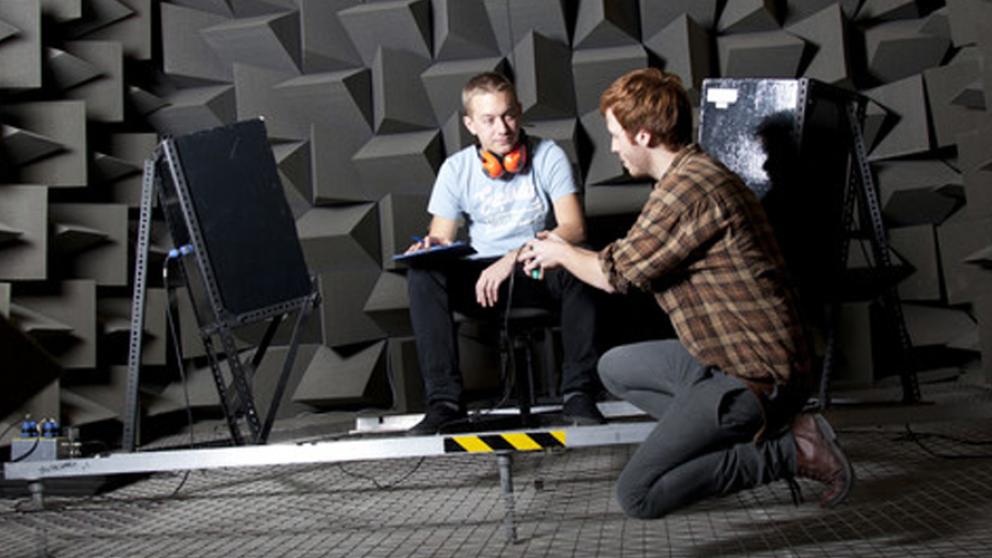Enhancing music listening for those with hearing loss: Salford Acoustics collaborating on new £1.6 million grant

How can we process and remix music so it sounds best for those with a hearing loss? The new Cadenza project aims to better define what music personalised for someone with a hearing loss should sound like and exploit the latest in machine learning to create improved music listening experiences.
The University of Salford’s Acoustics Research Centre has been awarded a grant from the Engineering and Physical Sciences Research Council (EPSRC) to investigate adaptations to music for those with a hearing loss. The grant of £1.6 million is a collaborative partnership that will see the University work alongside academic colleagues at Sheffield, Leeds and Nottingham as well as industry with the involvement of BBC, Google and Logitech and user engagement via Royal National Institute for the Deaf (RNID).
The improvement in music will be achieved by running a series of open competitions, which researchers from around the world will compete in. Competitors will be given music to enhance, through processing and/or remixing. They will be challenged to improve and personalise the music for listeners with hearing losses.
Professor Trevor Cox, Director of the Acoustics Research Centre at The University of Salford, and project lead commented: “Running competitions is a great approach, because it will grow a new research community devoted to making music more accessible to all. Machine learning has revolutionised audio research, but too often it doesn’t consider the diversity of listeners.
“I’ve been an amateur musician since I was at primary school, and now realise my hearing isn’t what it used to be. I will be one of the millions of people in the UK who can hopefully benefit from this research”
People with a hearing loss can experience problems when listening to music. One in 6 people in the UK has a hearing loss, with this number is increasing as the population ages according to the RNID. Poor hearing makes music harder to appreciate - this can mean picking out lyrics or melody lines is more difficult, and music becomes duller as high frequencies disappear. This reduces the enjoyment of music, and can lead to disengagement from listening and music-making, reducing the health and well-being effects we otherwise get from music.
Hearing aids often work poorly for music because they’re optimised for speech. As well as improvements to hearing aids, the project will look at other opportunities, such as improving music from consumer devices and from mixing desks at live venues.
Read more information on the work carried out by the Acoustics Research Centre.
For all press office enquiries please email communications@salford.ac.uk.
Share:
